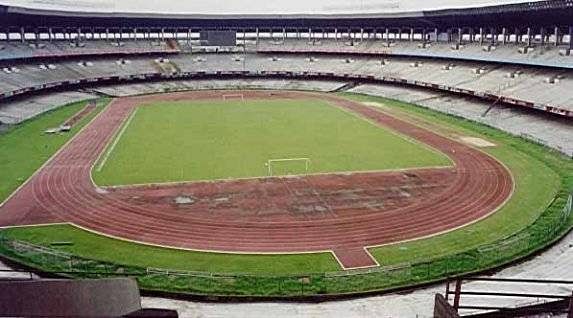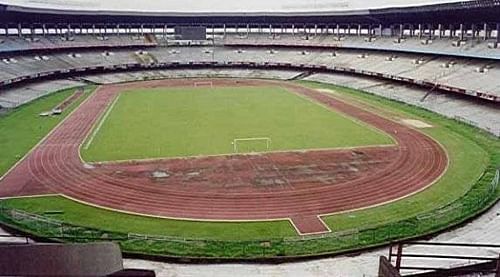
Sayonara Chandreshwar Prasad Singh

The six best central defenders or stopper backs that have played for India are Jarnail Singh, Arun Ghosh, Ahmed Hussain, Syed Nayeemuddin, Chandreshwar Prasad and Manoranjan Bhattacharya. Of these Jarnail, twice captain of Asian All-stars in the mid-sixties is no more. Arun Ghosh and Ahmed Hussain are ailing and a few days ago came the sad news of the demise of Chandreshwar Prasad, known during his career as C. Prasad.
He died in his mid-seventies, unsung and uncared for in a hospital and bitter that his achievements as a legendary footballer were not fully appreciated and recognised. His bitterness stemmed from the fact that he had been misunderstood and slighted by the All India Football Federation (AIFF) on two occasions and no attempts were made to get his version of the events.
In 1970, C. Prasad felt he had been superceded by Syed Nayeemuddin for captaincy for the Asian Games. C.Prasad felt he was senior and the honour should have gone to him. He played superbly in both the 1970 Merdeka tournament and Bangkok Asian Games but a controversy arose during the bronze medal match in the 1970 Asiad.
India was to play Japan for the bronze medal and C. Prasad withdrew from the playing eleven citing knee trouble. Sudhir Karmakar took his place and India won 1-0. However the rumour was spread that C. Prasad did this deliberately to slight Nayeem.
A well-built man, C. Prasad sometimes struggled against speedy forwards. He claimed that he did want to risk playing against the fast-paced Japanese, due to a niggle in his knee. But even though India won, he was blamed for withdrawing from the playing eleven.
The 1971 Merdeka rout
A year later when he was captain, in the 1971 Merdeka tournament, the team was afflicted by injuries. Subash Bhowmick, Sudhir Karmakar, Amar Bahadur, D. Nataraj and Mohammed Habib all suffered injuries and India struggled to field a team in their last league match against Burma (now Myanmar). On a rain soaked ground, India got routed 1-9 by Burma. Some of the Indian players like defender S. Gunapandian had brought small studded boots and found it difficult to adjust to the slippery conditions.
A month later, under Prasad’s captaincy India won the Pesta Sukan trophy in Singapore but the humiliation against Burma in the Merdeka tournament was the last straw for the AIFF. They felt C. Prasad was too old for international football and he was permanently dropped from the national squad.
On both occasions, C. Prasad felt he had been more sinned against than sinning and AIFF never tried to get his version of the events. He got the Arjuna award in 1971 but otherwise he was ignored by the AIFF and the local Bihar Football Association.
This apathy was evident in the cursory condolence messages by the AIFF’s President, Praful Patel and Secretary, Kushal Das. The condolence message even had the wrong age. It was claimed that he died when he was 80 years but he expired in his mid-seventies.
There were also no glowing obituaries in the national media. It is unfortunate that one of the country’s most gallant defenders became the forgotten man of Indian football as was evident in the low-key response to his death. C. Prasad and PK Banerjee are the only two distinguished internationals from Bihar, but neither the Bihar state Government nor the West Bengal Government(he played for Kolkata clubs from 1962—1973) sent messages of condolences.
The young prodigy
During his playing days, he had a physique like Tarzan, was commanding in the air, a hard tackler and an excellent man marker. A defender with a phlegmatic temperament, he was difficult to evade. He came into the limelight as a schoolboy for Patna FC in the Srikrishna Gold Cup held in his hometown. A precocious teenager he soon attracted the attention of football scouts from all over India.
In 1962, he shifted to Bengal Nagpur Railway (BNR) Kolkata. For three years, he gave sterling performances as a defender. He and Arun Ghosh became the best pair of central defenders in the country. It was BNR’s golden period. They won the 1963 IFA Shield beating Mohammedan Sporting 1-0 in the final and the Rovers Cup in Mumbai a year later beating mighty Mohun Bagan 1-0 in the final.
Then in 1966 he shifted to East Bengal and helped them win the IFA Shield that year. Next year he joined Mohun Bagan and stayed with them till 1971. From 1969—1971 he was Mohun Bagan’s captain. During that period, Bagan annexed the Rovers Cup in 1968, 1970 and 1971 and the IFA Shield in 1967 and 1969.
In 1972, he rejoined East Bengal, coached for the first time by PK Banerjee. In the 1972-73 season, East Bengal was the finest team in the country and won the Durand tournament, IFA Shield and were joint champions with Mohun Bagan in the Rovers Cup. East Bengal’s back four consisting of Sudhir Karmakar, C. Prasad, Ashoke Lal Banerjee and Probir Mazumdar were the best in the country.
A man of few words, C. Prasad had this remarkable ability to combine effectively with any other central defender and would always guide younger players. In 1970, he formed a formidable defensive partnership with Kalyan Saha for Mohun Bagan. Two years later he slotted in very well with Ashoke Lal Banerjee as central defenders for East Bengal.
A year later he joined Mohammedan Sporting but then a recurring knee injury halted his career. Unlike Syed Nayeemuddin (who came from Hyderabad but married and stayed in Kolkata), C. Prasad returned to his native Patna after his playing days were over and gradually became a forgotten man.
This stalwart defender played for India from 1966 to 1971 and was a member of the Indian squad which finished third in the 1970 Merdeka tournament and got a bronze medal in the 1970 Asian Games in Bangkok. He was the captain of the Indian national team in the 1971 Merdeka tournament and the 1971 Pesta Sukan tournament in Singapore, in which India finished as joint champions. He was also captain of the Indian junior team for the 1965 Asian Youth football meet in Tokyo.